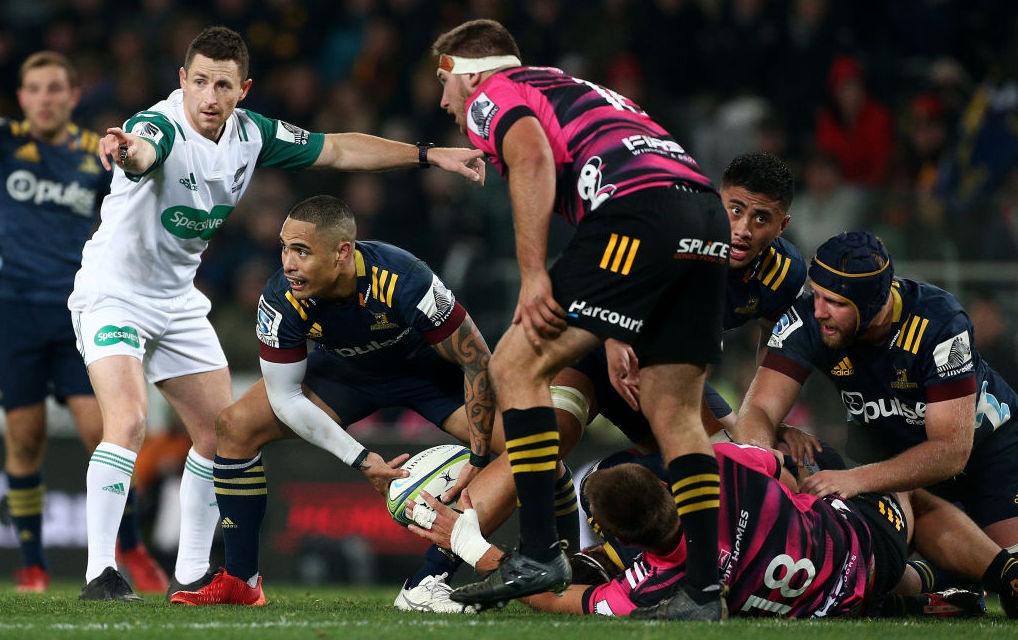The stricter policing of breakdown laws is a vitally important change being enforced at the start of Super Rugby Aotearoa, writes CRAIG LEWIS.
After just three games in New Zealand’s domestic competition, penalties have flowed at the breakdown. Good! If it takes hundreds of penalties for players to conduct safer, legal play at the breakdowns, so be it. In fact, if it takes thousands of penalties, so be it.
A point that has been driven home as New Zealand kick-started live rugby again is the fact that officials are not enforcing new laws, but simply focusing on stricter policing of those that have always existed.
Just three games into the Aotearoa competition, players coming in to clean out from the side or flying in off their feet at the breakdown have been mercilessly penalised. Good!
For some time now, the breakdown has increasingly begun to look like the scene of a serious ‘accident’ waiting to happen.
In an attempt to prevent defending players from slowing down ball, or attempting to poach possession, we have regularly seen opponents flying into rucks with reckless abandon in the past.
Often it is the neck and shoulder areas of players that have been exposed at a time when they are awkwardly prone with their heads in a ruck, only to find themselves on the receiving end of massive hits from a clean-out that comes from a player flying into the breakdown from the side or straight off their feet with force.
By reinforcing existing law, officials are forcing players and teams to reconsider how they approach their play at the breakdown, and the overwhelming consequence is that it will make for a safer game.
Yes, there will be some clear teething problems as players start to adjust to the stricter refereeing, while the inordinate penalty count at the breakdown has been quite painful to watch at times at the start of Aotearoa. But, again, so be it!
This is not one of those refocused law interpretations that should become a passing fad – such was the case with the stricter enforcement of straight scrum feeds, which then seemed to be quickly forgotten as old habits returned.
By ensuring players enter the ruck legally and do so by remaining on their feet, it’s ensuring that there is far less dangerous force from clean-outs, allowing for fetchers to once again come into play but, more importantly, ensuring they can do their jobs with a greater degree of safety and security. Kudos to that.
The most important thing we need now is for the officials across the board to ensure this law focus is enforced with consistency, and maintained from week to week without letting up. If this is the case, players and coaches are bound to adapt and adjust in double-quick time, particularly if the punishment through penalties remains unrelenting.
Ultimately, it’s all for the greater good, and may well prevent a serious neck or head injury, which had frighteningly begun to look like it was bound to happen in just a matter of time.





